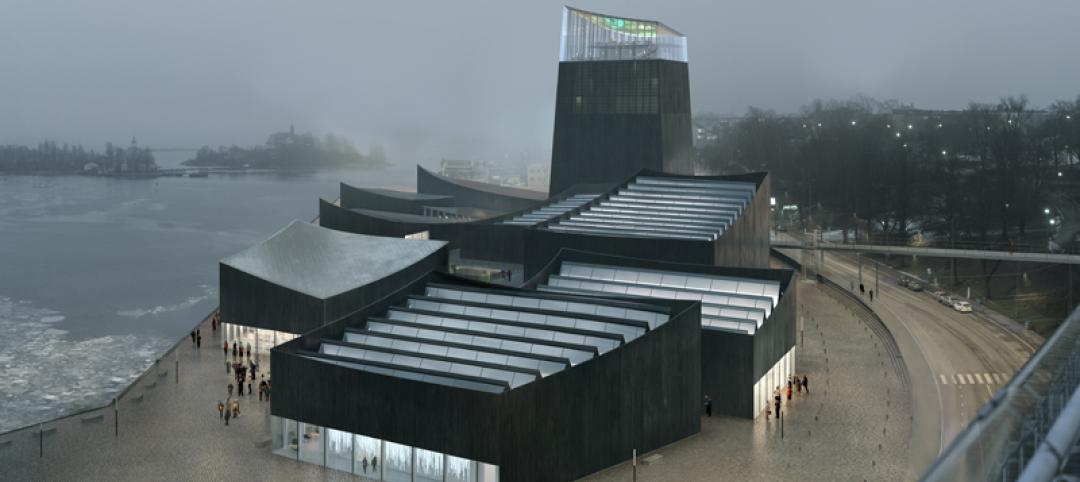December 3, 2017 - The American Institute of Architects (AIA) will lobby aggressively in coming days against significant inequities in both the House and Senate versions of the Tax Cuts and Jobs Act, just as the legislation heads into conference.
The House legislation abolishes the Historic Tax Credit (HTC), vital to the revitalization of America’s city centers and widely hailed as an economic engine since the Reagan Administration put them into place more than three decades ago. The Senate bill eliminates the current 10 percent credit for pre-1936 structures, and significantly dilutes the current 20 percent credit for certified historic structures by spreading it over a five-year period.
The Senate's tax reform bill allows small businesses that are organized as “pass through” companies (i.e. partnerships, sole proprietorships and S-Corporations) to reduce income through a 23 percent deduction. But, like the House-passed bill, the Senate bill totally excludes certain professional services companies - including all but the smallest architecture firms - from tax relief.
AIA 2017 President Thomas Vonier, FAIA, says:
"By weakening the Historic Tax Credits, Congress and the Administration will hurt historic rehabilitation projects all across the country - something to which architects have been committed for decades. Since 1976, the HTCs have generated some $132 billion in private investment, involving nearly 43,000 projects. The Historic Tax Credit is fundamental to maintaining America's architectural heritage.
"Unfortunately, both bills for some reason continue to exclude architects and other small business service professions by name from lower tax rates. There's no public policy reason to do this. Design and construction firms do much more than provide a service; they produce a major component of the nation's gross domestic product and are a major catalyst for job growth.
"Our members across the country are already mobilized to make sure their Congressional delegations know these views. In the coming days, we will spare no effort to make sure members of the House-Senate conference committee know the views of the AIA's more than 90,000 members on the inequities in both pieces of legislation
"We say this again: tax reforms must achieve three basic goals to ensure the vitality of small business and the health, safety and welfare of our communities:
· Preserve tax policies that support and strengthen small businesses.
· Support innovative, economically vibrant, sustainable and resilient buildings and communities.
· Ensure fairness.
"So far, this legislation still falls well short of these goals. If passed, Congress would be making a terrible mistake."
Related Stories
Architects | May 5, 2015
How to build 'smart' teams
In today's complex world, there are no simple answers—solutions to our most pressing problems aren't offered in 140 characters. Instead, it takes teams of people to rise to a challenge, resolve issues, and execute on strategy, writes Paladino's Julie Honeywell.
Multifamily Housing | May 1, 2015
Trade groups extend campaign to promote apartment living
The groups claim that there are more than 37 million Americans—12% of the population—living in just under 20 million apartment units nationwide. Apartments and their residents contribute $1.3 trillion annually to the economy.
Contractors | May 1, 2015
Nonresidential fixed investments fall in latest Construction Economic Update
This is the first time that nonresidential fixed investment declined since the first quarter of 2011, ABC reported. Nonresidential fixed investment had been rising by more than 4% on an annualized basis during five of the previous six quarters.
Architects | Apr 30, 2015
Safdie Architects accepting applications for 2015 Research Fellowship
The program, which features a theme of “dense urbanism,” encourages participants to tackle the challenges associated with contemporary urban landscapes using new tools and solutions to create a better functioning and humane city.
Museums | Apr 27, 2015
Finalists’ designs for Guggenheim Helsinki competition released
A custom-developed App engages an international public in the selection process.
Wood | Apr 26, 2015
Building wood towers: How high is up for timber structures?
The recent push for larger and taller wood structures may seem like an architectural fad. But Building Teams around the world are starting to use more large-scale structural wood systems.
Museums | Apr 23, 2015
Moshe Safdie unveils pentagonal scheme for National Medal of Honor Museum
The new museum near Charleston, S.C., will archive the history of the nation's highest military honorees.
Green | Apr 23, 2015
3 sustainable projects take top prize in 2015 Global Holcim Awards
Projects from Colombia, Sri Lanka, and the U.S. were chosen by the Holcim Foundation for the impact the projects have on their local communities.
High-rise Construction | Apr 23, 2015
Size matters in NYC, where several projects vie for the city’s tallest building honor
The latest renderings of 217 West 57th Street show a tower that would rise higher than the World Trade Center’s pinnacle, when elevations are included.
Multifamily Housing | Apr 22, 2015
Condo developers covet churches for conversions
Former churches, many of which are sitting on prime urban real estate, are being converted into libraries, restaurants, and with greater frequency condominiums.

















